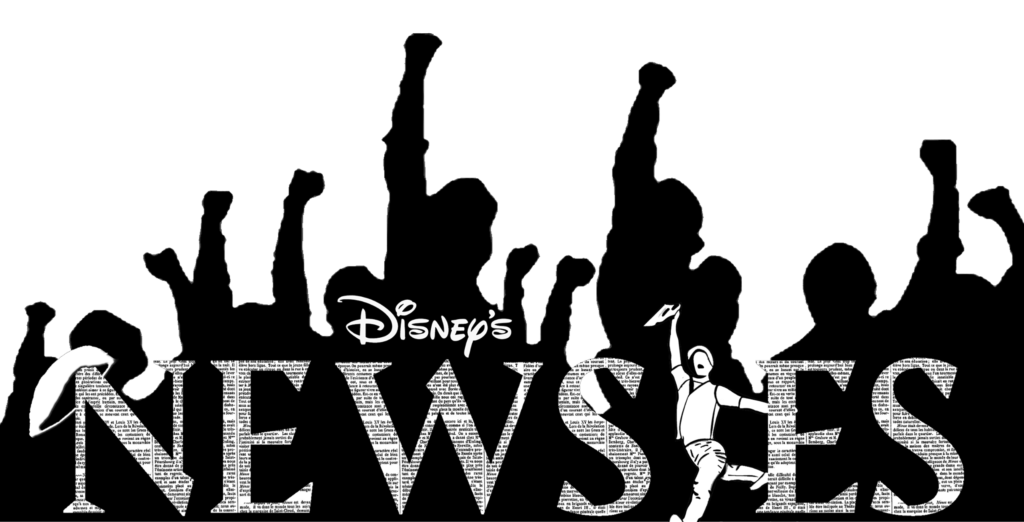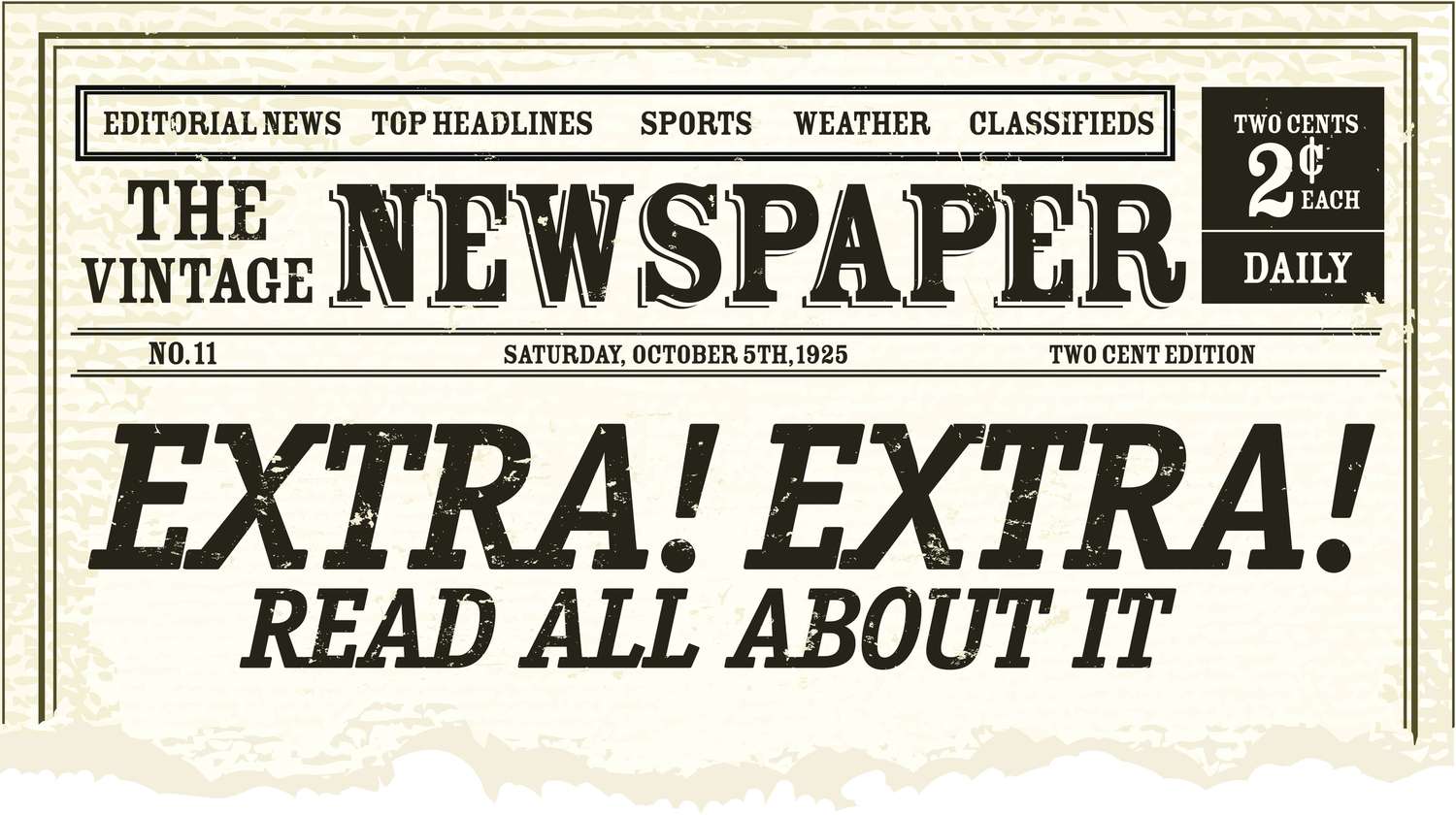I love looking at the magazines you find in the grocery store aisle. The headlines are always so attention-grabbing. Many a time I have been incredibly tempted to grab one off the shelf and open to the page bearing the article on a specific lead. Luckily for me, I typically lack the extra money to purchase one and have avoided the trap. However, I find this concept of fake news to be present everywhere. No matter where I turn, some articles pull me in and take my time but lack any real substance. And unfortunately, this habit is making me into a word-twisting journalist myself.
The Fake Headlines
It has been the press’ favorite marketing tactic for hundreds of years. The Broadway musical Newsies is a great example of this. In the musical, the newspaper-selling orphan Jack teaches some new Newsies how to sell more papers. He picks a small story from one of the back pages and starts calling out a huge exaggeration of the story. (“Extra, extra! Read all about it!) This is one of his main methods of selling more papers now that the news is slow. Most of it revolves around a trolley worker strike, which loses appeal after several weeks of nothing changing.
This happens to us daily. We see a crazy, shocking headline, such as “School Bus Accident Stops Interstate Traffic” and immediately have to click on the link or open the magazine. Then we discover it was merely a fender bender and traffic stopped momentarily. The only interesting bit is that the driver is being asked to pay a fine. Journalists love using this technique to pique our interest. It almost forces us to read their production. The news is often disappointing or takes so long to appear that it is not worth the time it takes to find it in the maze of words.

Is this the journalist’s poetic liberty or a robbery of our time? It is very difficult to say. It does indeed arrest our attention in a manner unworthy of the content we receive. But it is our choice to turn that page or click that link, no matter how loud and fascinating the title. The journalist has a job to be done. They will try to get attention no matter how. However, it is possible to look at it as false advertising. Because of these facts, I would suggest that it is both wrong of the journalist to tempt us and wrong of us to fall to the temptation. No matter where you draw the line, I think we can agree that it is a time-thieving concept and deceptive.
Avoiding the Temptation
No matter whose fault it is, fake news is taking far too much of our time and interest. Even if a piece of news has some true impact, often it is merely speculation or something that could happen. This takes our valuable focus and time every single day. Schedules are already too overwhelming and unhealthily full for us to let this prey on us as well. So what can we do to avoid this predator?
The very first and most obvious step is to not click on the link. It is easy to say that but often hard to perform that. You may be fully not planning on it but then… the headline seems just so important. I would urge you to simply pass over it. Commit yourself to the task of avoiding it and stay determined even if it seems to be a life-altering piece of news (which rarely is the news even in exaggerated form). Do not buy the magazine, do not choose the movie, do not open the article just because of the big headline.
Practical steps exist to make this an easier task, however. The most important thing is avoiding an excess of social media. It is one of the easiest places to allow yourself to catch a pretty title and end up in a loss of scrolling. Limit the amount of time you allow yourself on these platforms. Require yourself to do everything else on your to-do list before you open the app. These practical steps should help lessen bad habits and temptation. In addition, every time you do decide to read a piece of news, evaluate it afterwards. Was this worth my time and effort? Did the meat of the article reflect the title? Is my life improved in any way by this new information? Asking these questions will help you recognize when you are being hoodwinked.
Don’t Join Them
Living in a world of fake news, it is easy to become a mini embellishment-providing journalist yourself. It is tempting and often helpful for your own gain to exaggerate information to get attention. We experience this when we are telling a story to another about something we find odd or amusing. We tend to leave out parts that we feel take away some of the wonder and uniqueness of the story. In addition, if we are involved in a conflict, we leave out details of our role in bringing the issue about and emphasize that of the other person.

This works in us to create a creature of selfishness and unreliability. It makes us gossips, even liars if one wants to go that far. It is dangerous and a dark path to go down. We find ourselves editing history for our reputation, working to make the focus be on us, to make the appreciation be thrown at our feet. We want our words to be hung on and revered by others.
Oxford Languages defines integrity as “the state of being whole or undivided.” One of the biggest uses of this is honesty. To have integrity of speech we need to change our journalistic habits. We want our word to be complete, with no parallel universes where what happened sounds cooler than it does. We need to begin watching our habits. Do we find ourselves exaggerating events? Making things other people have done such big deals that we have to talk about them? Is our word being true to the content of our message? Ask yourself these questions. The answers will be eye-opening and help you form a word of honor for yourself.
The big, empty headlines of our journalistic world are reflective of the way the rest of our world is developing. They grab attention but never earn it. We should be built differently. If we form integrity, honesty, and humility into our speech we will be trusted and respected by many. Even if we are not, it is far more interesting to me to have the affection of a few than the empty praise of many. Let us make our voices ones bearing truth.
